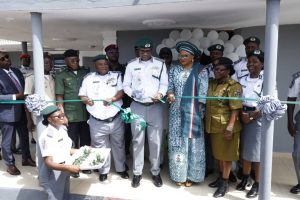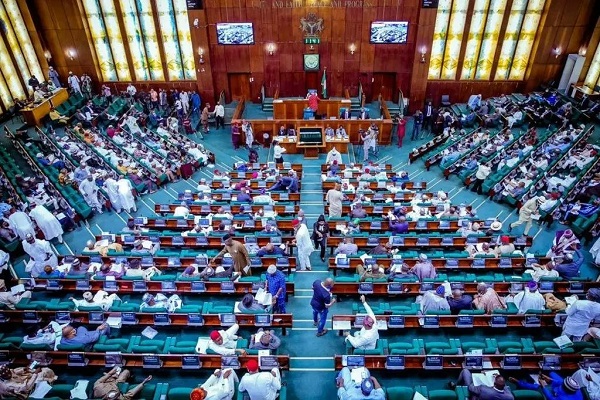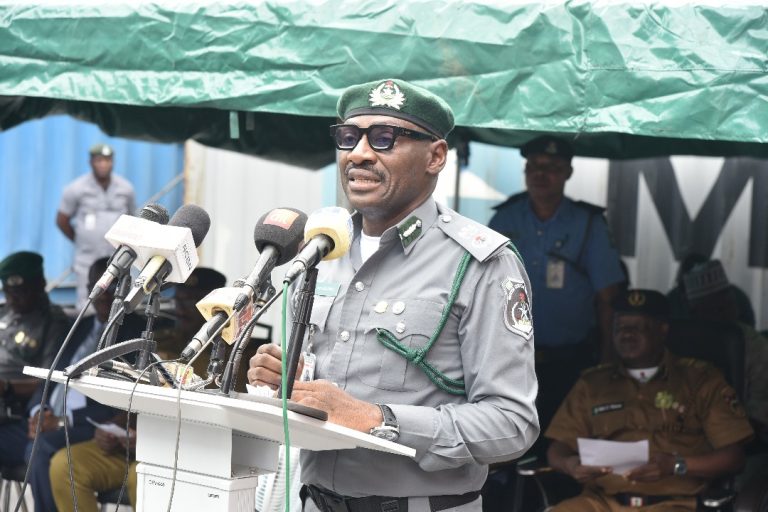- As Earthquake in Peru leaves at least four dead
A woman in South Africa who kidnapped a newborn baby and raised her for 17 years, before a chance encounter at a local school reunited the girl with her biological family, has been sentenced to 10 years in prison.
The kidnapping victim, who was named by her birth family as Zephany Nurse, was taken from her sleeping mother at a maternity ward at Groote Schuur hospital in Cape Town in 1997. Her kidnapper, now 52, who has not been named, raised the child as her own. The Nurse family had been living within a couple of miles of their kidnapped daughter, celebrating her birthday every year and never giving up hope of finding her.
The girl’s real identity was revealed by chance in February 2015 after her younger biological sister began attending the same local secondary school. Pupils were struck by the resemblance of the two students, who formed a close friendship.
According to one account, their parents then arranged to see the two sisters eating burgers together in McDonald’s. Struck too by the physical similarities, they contacted authorities. DNA tests confirmed that Zephany was their long-lost daughter, prompting the arrest of the woman who had raised her.
In handing down the lengthy jail sentence, a judge at the high court in Cape Town said the woman’s crime was premeditated and too serious not to warrant a jail term, South Africa’s News24 reported.
The kidnapper was found guilty in March of kidnapping, fraud and contravening the Children’s Act. She claimed she had not been at Groote Schuur hospital on the day Zephany Nurse was kidnapped, and said she had been tricked when she was given the baby by a woman called Sylvia who had been giving her fertility treatment after she had multiple miscarriages.
The trial judge, John Hlophe, dismissed her account as a “fairytale”.
State prosecutors had demanded 15 years’ imprisonment. Evidence found at the scene indicated that the woman had repeatedly entered the maternity wards of the hospital and made a series of attempts to abduct an infant before making off with Zephany.
Hlophe said the crimes the kidnapper had committed were serious, but he had taken into account her previously clean record and other mitigating circumstances in deciding the sentence, News24 reported.
After the kidnapper’s arrest, Zephany was placed with her biological parents and siblings by local social services. According to some reports in local media, Zephany has opted to move back to the home where she grew up and has not formed any bond with her biological family.
The teenager issued a statement aimed at reporters earlier this year saying: “Don’t you think for once that that is my mother? Whether it is true or not is not for you to toy with.”
In an impassioned plea for privacy, she added: “Have you got no shame or a bit of remorse about what I am going through? You invaded personal things about me and my loved ones. Not even half of those things are true … How would your daughter or son feel when their skin feels ripped off their face? … Appreciate the privacy you have with your family and think what I am going through, and my father and mother. I plead again: don’t hurt me no more with these lies please.”
There were emotional scenes at the courthouse in Cape Town as relatives of the convicted woman briefly hurled abuse at the Nurse family and shouted that Zephany would “always belong” to them.
Morné Nurse, the girl’s biological father, welcomed the sentence, saying he was looking forward to building a relationship with his daughter. “It’s actually made me tired, it’s made me sick completely,” he told Agence France-Presse outside court. “I couldn’t sleep for nights. I couldn’t even eat properly. So the way forward is to build my relationship with my daughter, and that’s it.”
During the trial, Celeste Nurse, Zephany’s biological mother, described how, aged 18, she woke up in the maternity ward to find her three-day-old baby had vanished from her cot.
Zephyr Nurse, the abducted woman’s grandmother, said the sentence would “tell people to stop abducting and kidnapping children”.
There are frequent reports of such cases in South African media, or other crimes involving trafficking of infants and children. In May, a South African woman who tried to sell her 19-month-old son on the internet was given a five-year suspended sentence.
The woman, 20, had put the boy up for sale for 5,000 rand (£230) in an advertisement on Gumtree. A member of the public alerted the police, and the woman was arrested in an undercover operation in October. The mother said she had tried selling her baby boy after her boyfriend stopped paying childcare following paternity tests that showed he was not the child’s father.
Human trafficking carries a maximum penalty of life in prison or a fine of 100m rand.
In the meantime, a 5.2 magnitude earthquake in Peru has left at least four people dead and 40 injured, a civil defense official said.
The toll from Sunday night’s quake in the southern Arequipa region might rise after about 50 homes collapsed and roads were cut off, the official told AFP.
Guardian with additional report from Punch


















